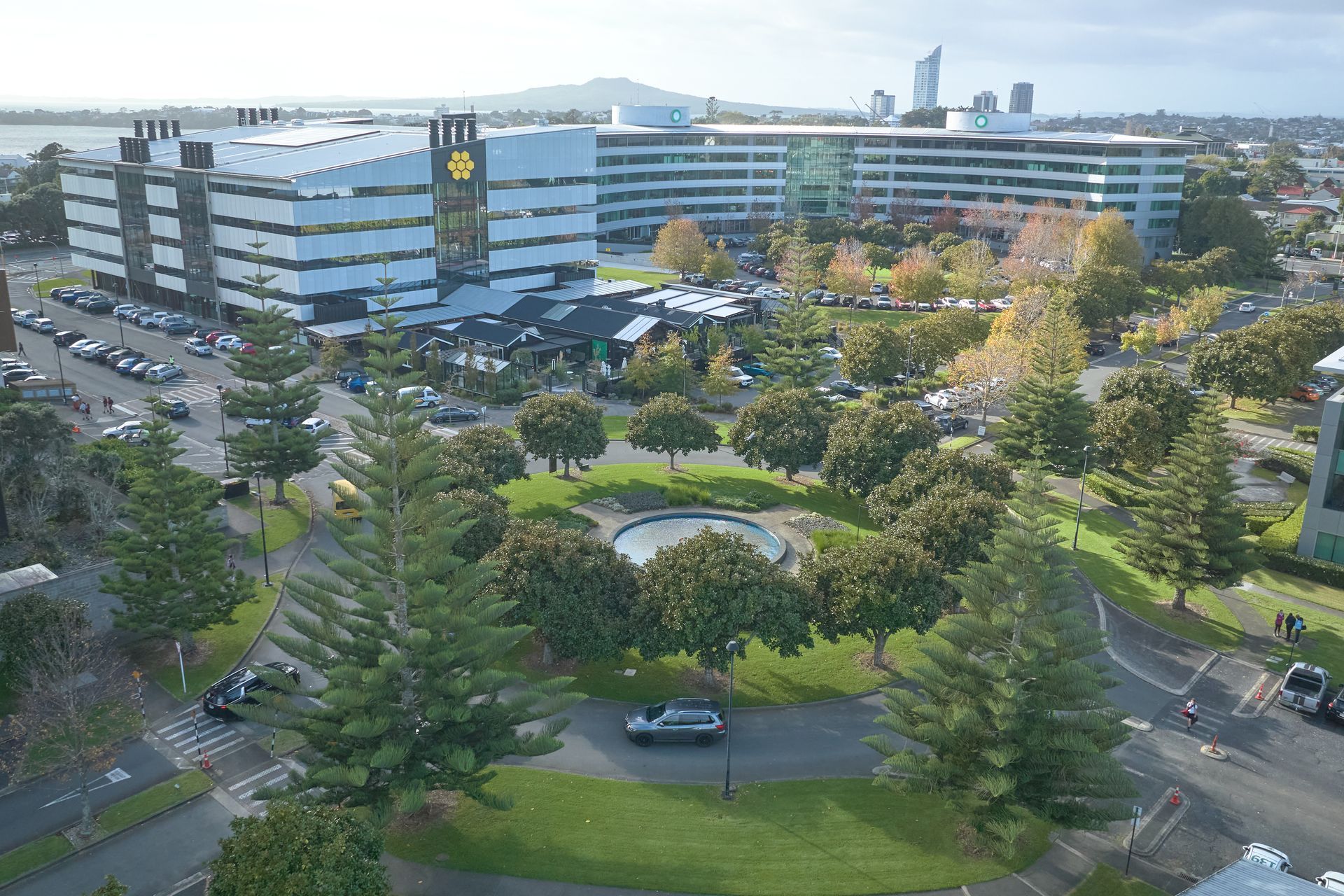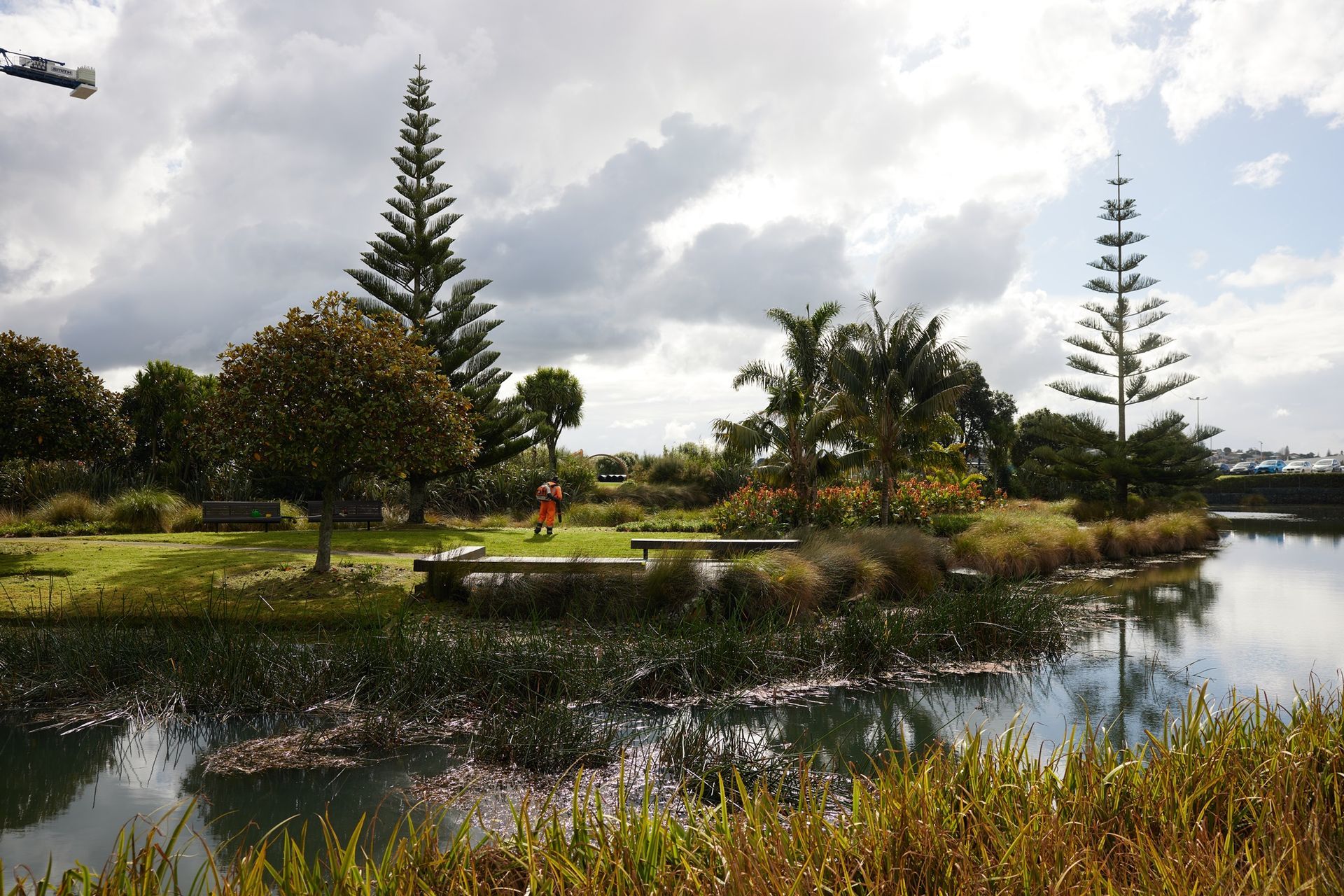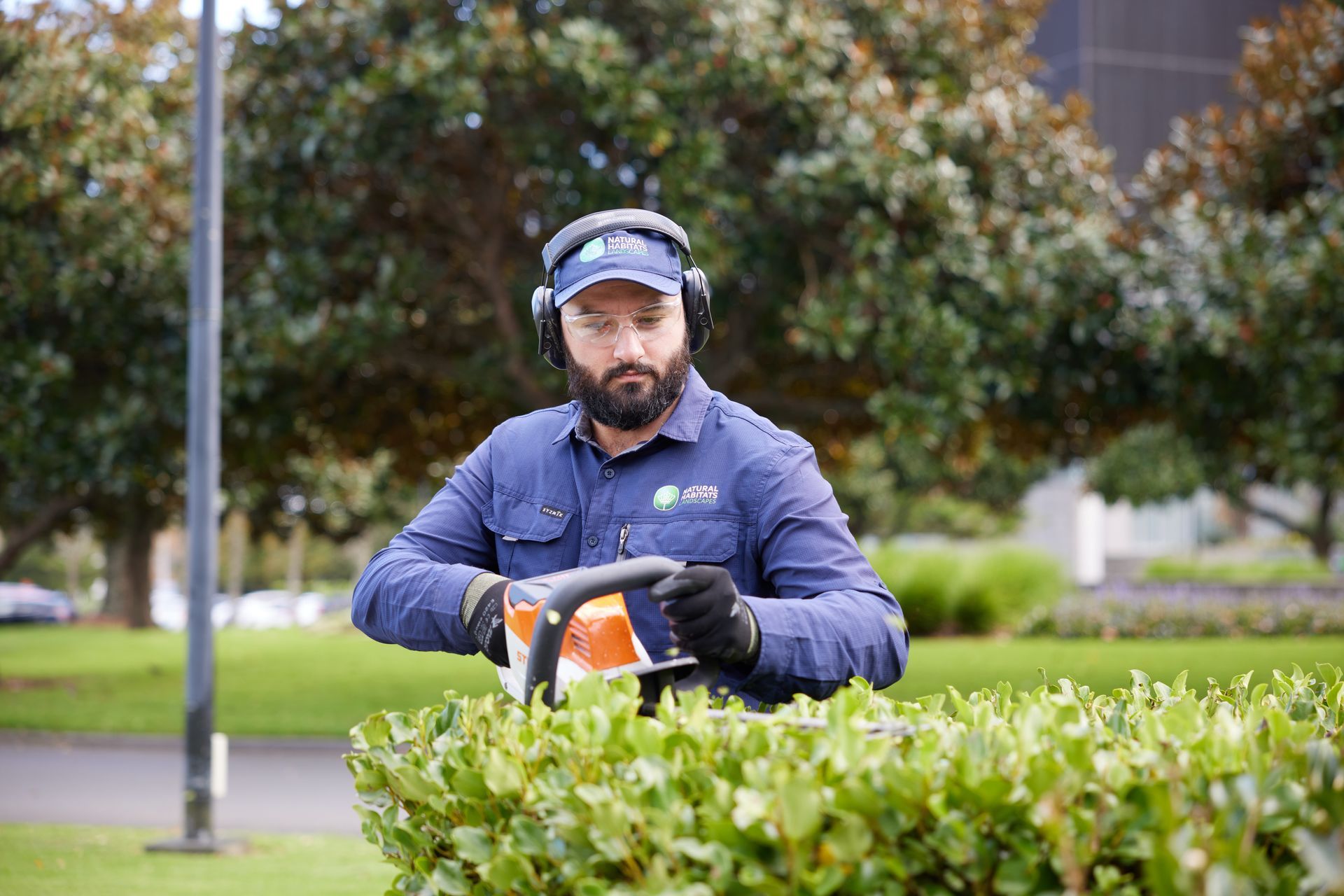Why a landscaping maintenance subscription is crucial for commercial properties to maintain brand identity
Written by
09 July 2023
•
4 min read

The way a brand is perceived by the public comes down to a cohesive public facing image. This involves the presentation of the staff, their vehicle fleet, and crucially, the buildings the company works from.
A building with overgrown gardens, weeds, dead branches on trees and unkempt lawns gives the message that the company doesn’t care or that it isn’t managing itself well.
This is all too common, even in spite of the care, attention and money put into outdoor spaces when buildings are created.
A beautiful landscape adds a considerable amount of value to a property, and if you have a nicely maintained outdoor space, there are well-documented health and wellbeing benefits to the people who use it.


In spite of the benefits, people often think they’ll make savings by cutting back on the landscape maintenance, says Maintenance Manager Dave Meyer from Natural Habitats, who specialise in creating and maintaining landscapes, but in the long run it’s not such a financially wise idea.
“If you have a maintenance subscription that means work is done little and often, landscapes are really manageable, versus if it’s been a year, and we need to do something drastic to get it back into shape.”
Natural Habitats offers a range of services. Their maintenance crew is made up of qualified horticulturalists, passionate gardeners and a skilled back of house support team. This ensures a high standard for both commercial and residential work.

What does a maintenance subscription cover?
Natural Habitats offers a Basic or a Premium maintenance service, based on the client’s needs and the scope of maintenance or improvements.
Services include: trimming and pruning trees and hedges; mowing lawns; weed management; plant nutrition; and maintenance of irrigation. The maintenance department has a small specialist crew that deals with property improvements for both hard and soft elements.
“We offer a service tailored to the client's needs, with the basic standard being neat and tidy at all times. This includes weeding, mowing, edging, and pruning. The premium service would be the basics plus advanced pruning, reshaping, feeding plants, and disease control.”
A premium plan will also take into account improvements to the property that the gardener suggests or the client wants to make over time so that Natural Habitats can integrate them into the long term maintenance.
Meyer says in the long run, a maintenance subscription is far cheaper than leaving outdoor spaces to their own devices.
“Even though you would be spending a monthly figure on maintenance, if you did it annually instead, you'd be spending a bit more and the gardener wouldn’t be able to look at improvements that could be made.”

What is the process for signing up to a landscaping maintenance subscription service?
Before a client signs up to a subscription, Natural Habitats discusses the scope of work involved and finds out what the client wants to achieve, whether it’s basic upkeep, or long-term improvements.
Once a scope of work is devised, a contract is signed and maintenance schedules are put in place.
Initially an external clean-up team comes in to do basic jobs like weeding, pruning, mowing and edging, after which the subscription with the professional team commences.
“We have different teams that are assigned to the north of Auckland and South Auckland so in most cases, you get to know your gardener. Our gardeners take a sense of pride in improving a company’s grounds and they’re always on hand to offer advice on property improvements,” says Meyer.
Depending on the size and client’s needs, the garden could be maintained weekly or every second week, and each month a service report written by the gardener is sent to property owners to keep them updated with progress and make suggestions for future maintenance.
“Our team is so invested in the properties they maintain and they’re highly skilled, qualified people who are always looking at ways to improve what you’ve got.”
Discover stunning landscape projects by Natural Habitats